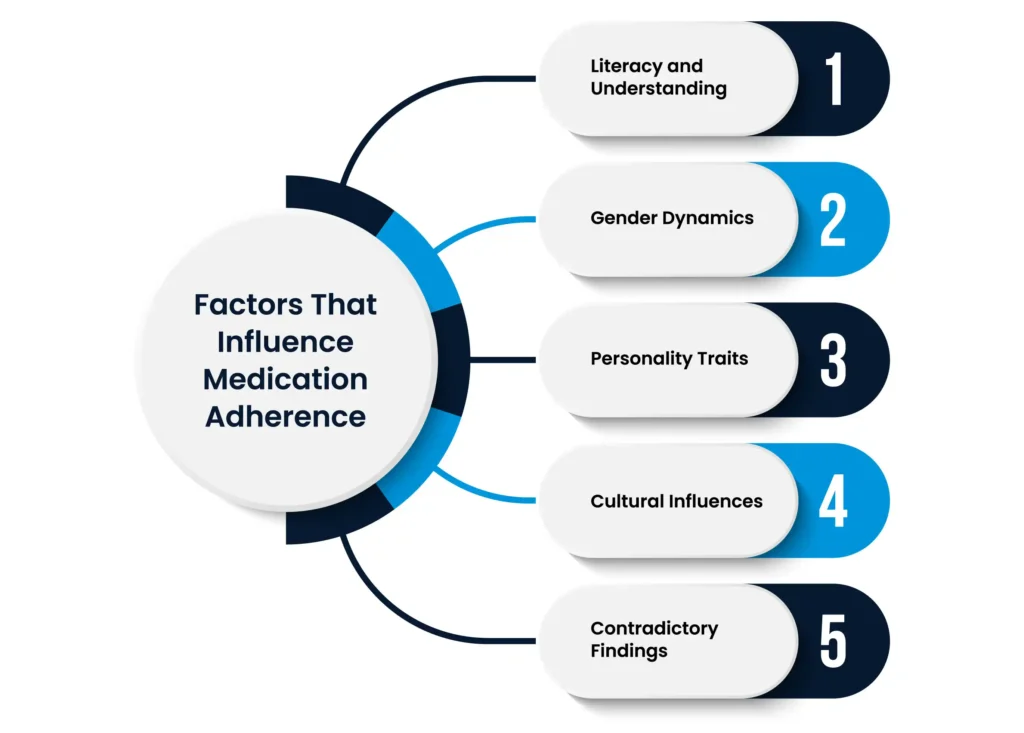
Exploring Heart Weight and its Variations
Exploring Heart Weight and its Variations Your heart beats an average of 100,000 times a day, silently working to keep you alive. But have you

Medication adherence is more than just taking pills – it’s a commitment to your health. But let’s face it, life gets busy, and it’s easy to forget. This blog demystifies the art of sticking to your medication regimen. We’ll discuss why it’s important and offer tips and tricks to integrate it seamlessly into your daily routine.
Medication adherence might sound like a complex term, but it’s actually a straightforward and crucial concept in healthcare. In essence, it’s all about how well we follow our healthcare provider’s advice regarding our medications. According to the World Health Organization, medication adherence is “the degree to which the person’s behavior corresponds with the agreed recommendations from a health care provider.”
Now, you might have heard of another term – compliance. While often used interchangeably with adherence, there’s a subtle difference. Compliance refers to how closely a patient follows a doctor’s prescription. It’s more about following orders. Think of it as a one-way street where the doctor gives instructions, and the patient follows.
Adherence, on the other hand, is more like a two-way street. It’s not just about taking medicine as prescribed. It involves a partnership between you and your doctor. It’s about fitting the medical advice into your lifestyle, considering what’s important to you, your values, and how you prefer to manage your health. This collaborative approach aims to integrate the doctor’s medical knowledge with your unique life circumstances, creating a more personalized and effective healthcare plan.

Several factors can impact how well patients stick to their medication regimens. Understanding these factors is key to improving adherence:
Medication adherence is especially crucial for older adults, who often have to manage multiple prescriptions. As we age, keeping track of various medications and taking them as prescribed can become challenging, yet it’s essential for maintaining good health. Improving medication adherence in elderly patients involves a comprehensive approach that addresses various factors. Here’s a closer look:
Self-Management Ability: It’s crucial to assess whether the elderly patient is capable of handling their own medication. This includes their ability to understand and follow the medication regimen.
Attitude and Behavior: Understanding the patient’s attitude and behavior towards medication is vital. Positive attitudes can be encouraged through education and understanding the benefits of the medication.
Knowledge about Disease and Medications: Educating patients about their diseases and the role of medications in managing them can enhance adherence.
Chronic Conditions: Special attention is needed for those with chronic issues, as complex regimens can be overwhelming. Tailoring the medication plan to fit their lifestyle can help.
Drug Regimen Complexity: Simplifying the drug regimen, when possible, can significantly improve adherence. This might include reducing the number of doses per day or switching to combination medications.
Drug Handling: Ensuring that the medication is easy to handle (e.g., easy-to-open bottles, clear labeling) can help elderly patients manage their medications more effectively.
Trustworthy Providers: Building a relationship of trust between the patient and healthcare provider encourages open communication and adherence.
Effective Communication and Interactions: Clear, empathetic communication from healthcare providers helps in making patients feel understood and supported. This includes explaining the importance of adherence and discussing any concerns the patient might have.
Improving medication adherence in the elderly requires a multifaceted approach. By focusing on these critical factors, we can create a supportive environment that encourages adherence, ultimately leading to better health outcomes for elderly patients.
Improving medication adherence is like solving a puzzle with many pieces. It involves the combined efforts of patients, healthcare providers, and the healthcare system. There isn’t a one-size-fits-all method; instead, a blend of various techniques tailored to individual needs works best.
It starts with a conversation. Healthcare providers can encourage patients to express their preferences and concerns regarding their medications. This dialogue can lead to a custom approach towards medication plans that the patients feel invested in, thereby improving adherence.
Providers should explain the purpose, dosing, and importance of each medication. Equally important is to discuss possible side effects and how to manage them. This ensures patients are well-informed and more likely to follow their medication regimen.
From pill organizers to medication tracking apps, these aids can significantly help patients, especially the elderly, to remember their dosing schedules. Additionally, written schedules or charts provided by healthcare professionals can serve as daily reminders.
Follow-ups are essential. They allow providers to monitor adherence, make necessary adjustments to the medication regimen, and address any emerging issues or concerns the patient may have.
In conclusion, medication adherence is a critical component of effective healthcare, particularly for managing chronic conditions and ensuring the well-being of the elderly. By understanding the various factors that influence adherence, such as literacy, cultural beliefs, and personality traits, we can adopt more effective strategies to improve it.

Exploring Heart Weight and its Variations Your heart beats an average of 100,000 times a day, silently working to keep you alive. But have you

Understanding What is White Coat Syndrome and Why This Happens Did you know that a significant number of people experience a temporary spike in blood
Talk to an Expert Now